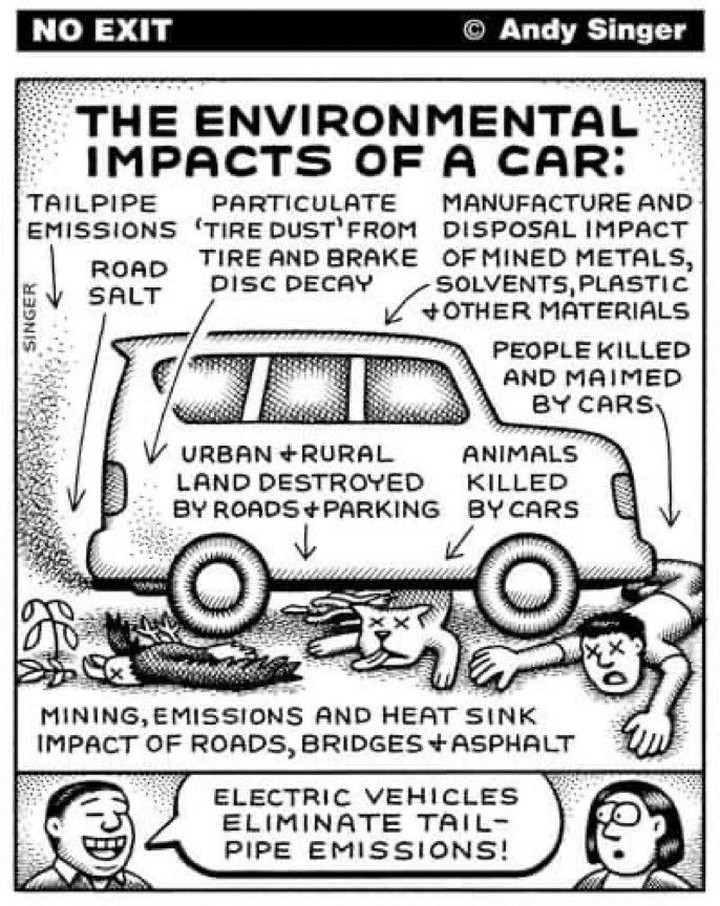Relatively split reaction, huh? Interesting.
So, I think it's kind of naive to believe that we can solve everything tomorrow/very soon with public transportation. It's pretty easy to believe that if you define the rural/urban divide to include a lot of suburbs as urban, which sort of, gets away from the bleakness of the situation a little bit, I think. I think I remember somewhere around a third being split between each form, with a little less being in the suburbs compared to either rural or urban, so it's pretty evident that, even of a portion of the people that work in cities, live just outside cities, those people live with untenable densities for public transportation. I think that's solvable, right, in the long term, by local municipalities, over the course of the next 40-50 years give or take, because infrastructure gets decroded, needs to be replaced, and you can replace it in the meantime just by reworking the standards, something which is generally self-evident to voters as a better solution and creates a positive feedback loop as long as people aren't completely propagandized to.
The only problem I think you might encounter with this is that it's very hard to get this going in a place that doesn't already support it at all. It's much easier to create public transport if you have somewhere to go, if you're already on the outskirts of a large city. If you make a walkable place in the midst of a collection of townships and municipalities which don't support that, you've become less permeable to cars, and those other municipalities need to provide public transport that goes to your town where they can spend money on your goods and stimulate your local economy, and that doesn't strike me as something likely to happen. This is the structure of lots of shitholes in america already, because the lack of density kind of lends itself towards a fragmented series of municipalities joined together with dogshit social services rather than a singular contiguous government.
But, then, I also think it's kind of insane the level to which we accept cars and car-centric infrastructure as inevitable even within this context. If you want to slowly increase density, I think there's really a lot of progress that could be made, not specifically by the technology of EVs, but just by making cars smaller. Like, we already see that in europe, japan, whatever. EVs have bigger batteries on average, sure, but you're not going to see people get up in arms about the increased pollution that E-bikes cause, and that's the same fundamental technology of a battery electric vehicle in a different form factor. I feel like the first and most obvious step towards a solution would be decreasing the absolutely extreme size of cars in the US, in any case. You can still be compatible with your 15 mile city outskirts shithole suburb while driving a car that's the size of a geo metro or smaller. It's worked so far for me, anyways. Decreasing size totally strikes me as a bigger win than transitioning to EVs, a higher priority, maybe, though, they're not really mutually exclusive in any way. Smaller lighter cars can be safer in crashes because of the decreased mass, decreased need for stopping power, they can be more gas efficient, possibly much more gas efficient, especially with hybrid technologies. It strikes me as a much simpler solution, one that legitimately requires less production to solve the issue, is more efficient.
